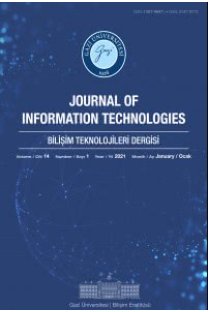Doğmamış Bebeklerin ve Ölmüş Kişilerin Kişisel Verilerinin Korunmasında Düzenleyici Yaklaşımlar
Regulatory Approaches for the Protection of Personal Data of Unborn Children and Deceased Persons
___
- [1] Internet: Kişisel Verileri Koruma Kurulunun 18/03/2021 tarihli (https://kvkk.gov.tr/Icerik/7120/2021-241) ve 2021/241, 30/06/2020 tarihli ve 2020/507 Sayılı (https://kvkk.gov.tr/Icerik/6926/2020-507) ve 18/09/2019 T arihli ve 2019/273 Sayılı (https://kvkk.gov.tr/Icerik/6710/2019-273) Kararları, 15.05.2022.
- [2] Article 29 Data Protection Working Party 01248/07/EN WP 136, O pinion 4/2007 on the concept of personal data, Belçika, 20 June 2007.
- [3] Explanatory Memorandum / Recommendation No.R (97) 5 of the Committee of Ministers to Member States on the protection of medical data (Adopted by the Committee of Ministers on 13 February 1997 at the 584th meeting of the Ministers’ Deputies).
- [4] B. G. Özcan Büyüktanır, “ Ceninin Bedensel Bütünlüğünün İhlalinde Maddi Zararın T azmini”, İnönü Üniversitesi Hukuk Fakültesi Dergisi, 9(1), 275-302, DOI: 10.21492/inuhfd.403025.
- [5] Paton v. United Kingdom, European Commission of Human Rights 13 May 1980 (1981) 3 E.H.R.R. 408 Application No. 8416/78.
- [6] D. Cooper, “Re-defining “personal data” — can the opinion live up to the hype?”, Data Protectıon Ireland, 3(6), 7-10.
- [7] Explanatory Memorandum / Recommendation No.R (97) 5 of the Committee of Ministers to Member States on the protection of medical data (Adopted by the Committee of Ministers on 13 February 1997 at the 584th meeting of the Ministers’ Deputies).
- [8] Internet: https://gdpr.be/nederlands/genetic-data-unborn-children- subject-data-protection-gdpr/, 22.02.2022.
- [9] Internet: https://en.wikipedia.org/wiki/Fetal_rights, 15.05.2022.
- [10] Member Council Of Europe Committee Of Ministers Recommendation No. R (97) 5 Of The Committee Of Ministers To States On T he Protection Of Medical Data (Adopted By The Committee Of Ministers On 13 February 1997 At The 584th Meeting Of T he Ministers' Deputies).
- [11] Internet: Legal position relating to unborn children, https://childlawadvice.org.uk/legal-position-relating-to-unborn- children/, 22.02.2022.
- [12] Article 29 Data Protection Working Party, 01248/07/EN WP 136 O pinion 4/2007 on the concept of personal data, Adopted on 20th June.
- [13] K. Pormeister, Ł. Drożdżowski, “ Protecting the Genetic Data of Unborn Children: A Critical Analysis”, European Data Protection Law Review, 4(1), 53, 2018.
- [14] Analysis of the legal and human rights requirements for ge nomics in and outside the EU, WP2 – Human Genetics and Genomics, task 2.2, 29 March 2019.
- [15] İ. Çepni, “ Kadın Sağlığı ve Üreme T ıbbı Açısından Kişisel Sağlık Verileri, Saklanma”, Kişisel Sağlık Verileri IV. Ulusal Kongresi, Webinar, 24-25 Ekim, 2020.
- [16] A Practitioner's Guide To Information Sharing, Confidentiality And Consent To Support Children And Young Pe ople 's We llbeing, Version: January 2018.
- [17] Article 29 Data Protection Working Party, 01248/07/EN WP 136, O pinion 4/2007 on the concept of personal data, 20 June 2007.
- [18] AB Konseyi T utanakları, 4730/95 Re M.2(a) 8.2.1995.
- [19] E. Harbinja, “ Does the EU Data Protection Regime Protect Post- Mortem Privacy and What Could Be T he Potential Alternatives?”, SCRIPTed, 10(1), 2013.
- [20] Internet: Estonia, Personal Data Protection Act, http://www.legaltext.ee/text/en/X70030.htm, 15.05.2022.
- [21] Internet: Sweden, Personal Data Protection Act (1998:204), http://www.sweden.gov.se/content/1/c6/01/55/42/b451922d.pdf, 15.05.2022.
- [22] ICO Information about the deceased, 20130522 Version: 1.1 .
- [23] Internet: The Data Protection Act, Act No. 502 of 23 May 2018, https://www.datatilsynet.dk/media/7753/danish-data-protection- act.pdf, 22.02.2022.
- [24] Internet: E. Harbinja, Does the EU Data Protection Regime Protect Post-Mortem Privacy and What Could Be T he Potential Alternatives?, https://script-ed.org/article/eu-data-protection- regime-protect-post-mortem-privacy-potential-alternatives, 21.02.2022.
- [25] Article 29 Data Protection Working Party, 01248/07/EN WP 136, O pinion 4/2007 on the concept of personal data, 20 June 2007.
- ISSN: 1307-9697
- Yayın Aralığı: Yılda 4 Sayı
- Başlangıç: 2008
- Yayıncı: Gazi Üniversitesi Bilişim Enstitüsü
Otomatik Yazılım Test Araçlarını Değerlendirmek için Karşılaştırmalı Bir Çalışma
Derin Öğrenme Tabanlı Havacılık Uçuş Verilerinde Gecikme Durumunun Tahmin Edilmesi
3B Görselleştirme Ortamı Olarak Web Tarayıcıları
Şevval Seray MACAKOĞLU, Serhat PEKER, İhsan Tolga MEDENİ, Tunç Durmuş MEDENİ
Doğmamış Bebeklerin ve Ölmüş Kişilerin Kişisel Verilerinin Korunmasında Düzenleyici Yaklaşımlar
Mehmet Ali İNCEEFE, Abdülkerim Oğuzhan ALKAN, Alper TANRISEVER
Dengesiz Veri Kümeleriyle Sınıflandırmada Gelişen Trendler: İlerlemenin Bibliyometrik Analizi
Abdullah MARAŞ, Çiğdem SELÇUKCAN EROL
Sanal Deneme Odası ve Beden Ölçüsü Tahminleme Destekli Mobil Alışveriş Uygulaması
Aziz Onur SERT, Erdal Kutay ŞEŞEN, Özgür GÜMÜŞ
Yapay Zekâya Dayalı Robot Kol ile Hareket ve Farklı Nesnelerin Sertlik Kontrolü
Bekir AKSOY, Koray ÖZSOY, Mehmet YÜCEL, Özge EKREM, Osamah Khaled Musleh SALMAN
Makine Öğrenmesi Yaklaşımlarının Spam-Mail Sınıflandırma Probleminde Karşılaştırmalı Analizi
Sosyal Ağlarda Topluluk ve Konu Tespiti: Bir Sistematik Literatür Taraması
